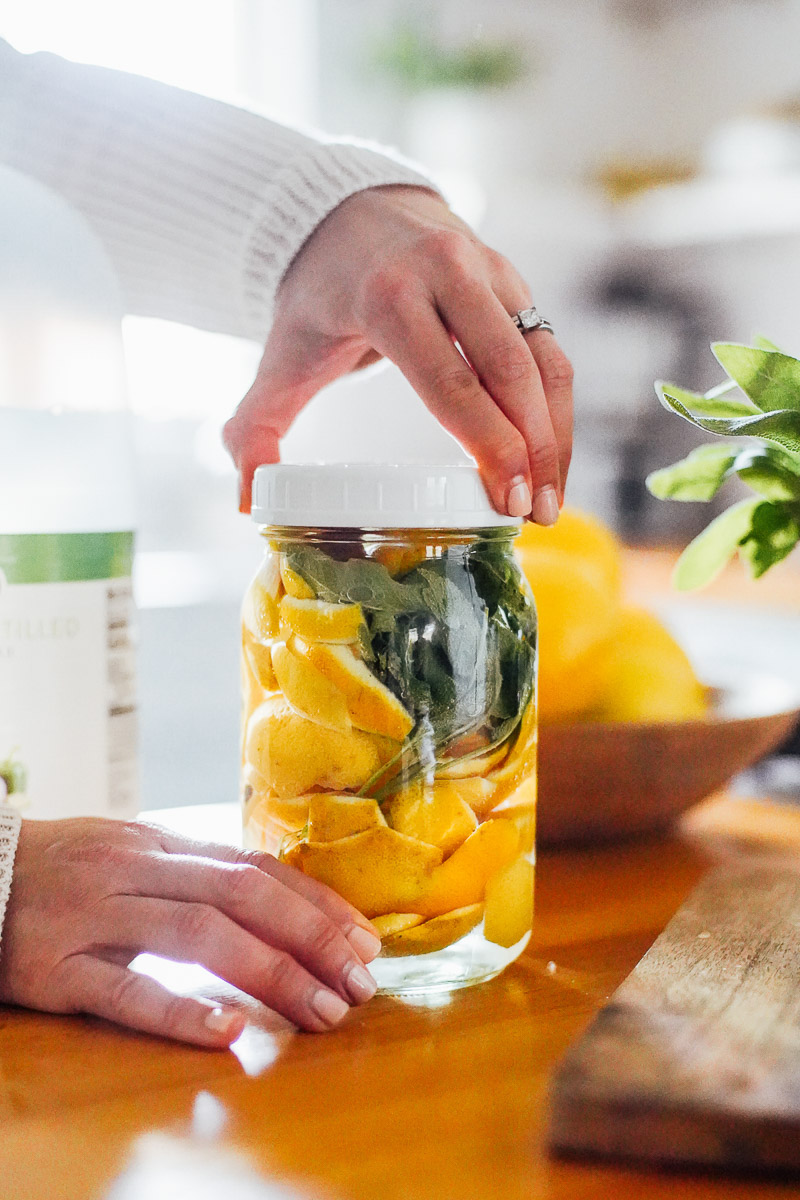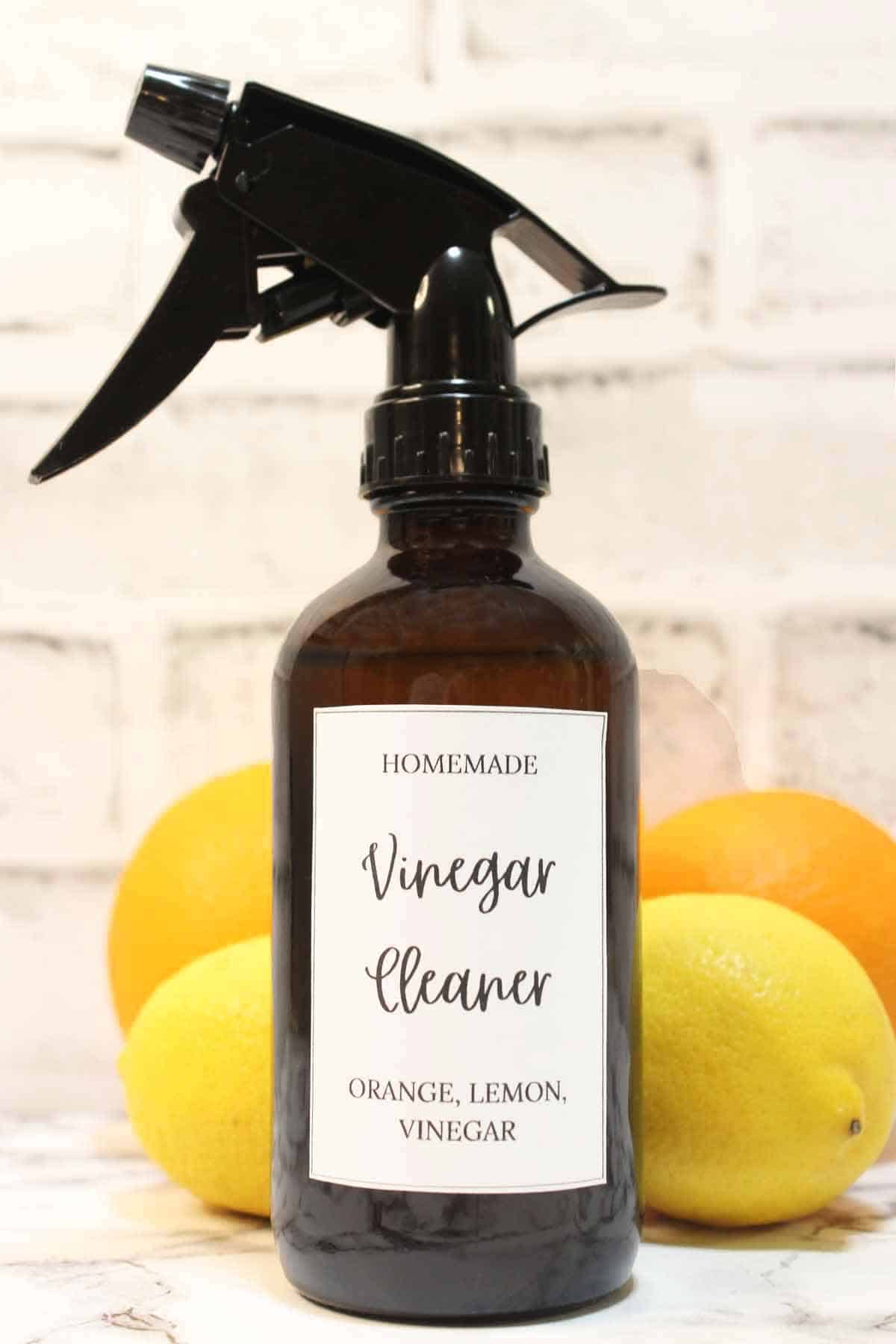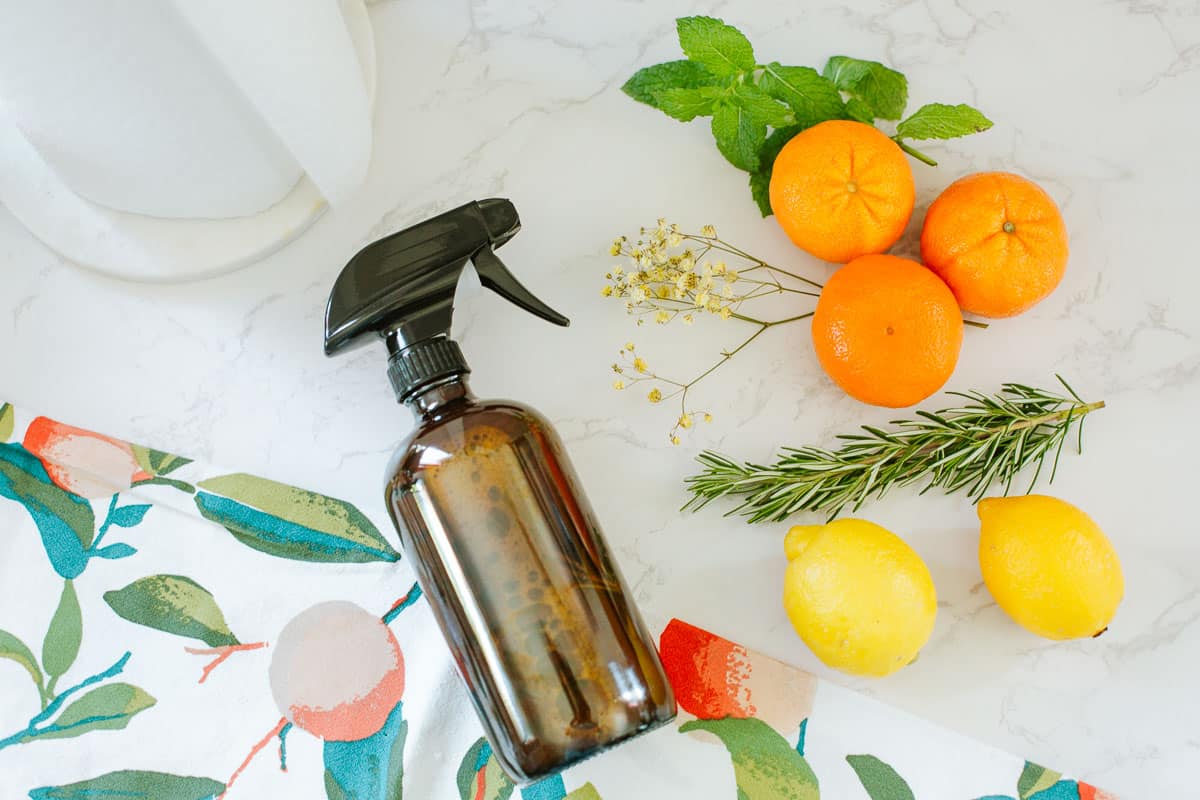
Naturally Fresh: Homemade Citrus Cleaners for a Sparkling Homestead
Imagine your home filled with the bright, clean scent of citrus, not harsh chemicals. What if you could achieve that sparkling freshness with ingredients you likely already have on hand? This is the power of homemade citrus cleaners – a natural, effective, and surprisingly easy way to keep your homestead clean.
We’re talking about more than just a pleasant smell. Natural cleaning offers a plethora of benefits, from reducing your exposure to harmful toxins and saving money to minimizing your environmental impact. And at the heart of it all, citrus peels – those seemingly insignificant leftovers from your morning juice or snack – become powerful allies in your quest for a healthier home.
In this post, we’ll explore the wonders of homemade citrus cleaners, diving into recipes, applications, and tips for creating a truly sustainable cleaning routine. Get ready to zest for cleaning, the natural way!

Here, orange peels are infusing in a mason jar filled with vinegar, beginning the process of creating a natural citrus cleaner. The image exemplifies the slow-living and resourcefulness promoted in homesteading.
The Science Behind Citrus Cleaning
Why does citrus work so well as a cleaner? The secret lies in its chemical composition. Citrus fruits, like lemons, oranges, limes, and grapefruits, are packed with citric acid and d-limonene.
- Citric Acid: This naturally occurring acid acts as a mild disinfectant and helps to dissolve hard water stains, soap scum, and mineral deposits. It's a powerhouse against common household grime.
- D-limonene: Found in the peels of citrus fruits, d-limonene is a powerful degreaser and solvent. It's responsible for that characteristic citrus scent and helps to break down grease and oil effectively.
Beyond their cleaning prowess, citrus cleaners offer a significant environmental advantage. Unlike commercial cleaners that often contain harsh chemicals and contribute to water pollution, citrus cleaners are biodegradable and derived from renewable resources. They reduce your reliance on single-use plastic bottles and minimize your carbon footprint.
It's important to note some limitations. Citrus cleaners, particularly vinegar-based solutions, are acidic and may not be suitable for all surfaces. Avoid using them on natural stone (like marble or granite), waxed wood, or aluminum, as they can etch or damage these materials. Always test in an inconspicuous area first! Additionally, while citrus cleaners possess antibacterial properties, they may not be as potent as some commercial disinfectants. For situations requiring heavy-duty disinfection, consider using a stronger natural alternative like hydrogen peroxide.
Basic Citrus Vinegar Cleaner: Your Go-To Solution
This versatile cleaner is the foundation of your natural cleaning arsenal. It's simple to make, cost-effective, and incredibly effective.
What You'll Need:
- Citrus peels (from approximately 3-4 oranges, lemons, limes, or grapefruits)
- White vinegar
- A large glass jar (mason jars work perfectly)
- A spray bottle (preferably glass or reusable plastic)
- Cheesecloth or a fine-mesh sieve
Instructions:
- Collect Your Peels: Enjoy your citrus fruits, and save the peels! You can use a combination of different citrus fruits for a more complex scent.
- Prepare the Jar: Make sure your glass jar is clean and dry.
- Fill the Jar: Pack the citrus peels into the jar, filling it about halfway to three-quarters full.
- Pour the Vinegar: Pour white vinegar over the peels, ensuring they are completely submerged. Leave about an inch of headspace at the top of the jar.
- Infuse: Seal the jar tightly and store it in a cool, dark place for at least two weeks, and ideally up to six weeks. The longer it infuses, the stronger the citrus scent and cleaning power will be.
- Strain: After the infusion period, strain the vinegar through cheesecloth or a fine-mesh sieve to remove the peels. Compost the used peels.
- Pour into Spray Bottle: Pour the infused vinegar into a spray bottle. Label the bottle clearly with the contents and date.
- Store: Store your citrus vinegar cleaner in a cool, dark place. It should last for several months.

A filled spray bottle showcases the finished citrus vinegar cleaner. This versatile solution is ideal for a variety of cleaning tasks, exemplifying sustainable living practices.
Versatile Applications: From Kitchen to Bath
Citrus vinegar cleaner is a true multi-purpose solution for your homestead. Here are just a few of its many uses:
- Kitchen Countertops: Spray and wipe down countertops (test in an inconspicuous area first, especially on granite or marble).
- Sinks: Clean and deodorize sinks with a spray of citrus vinegar.
- Stovetops: Remove grease and grime from stovetops.
- Cutting Boards: Disinfect wooden cutting boards (rinse thoroughly after cleaning).
- Toilet Bowl Cleaner: Pour a cup of citrus vinegar into the toilet bowl, let it sit for 30 minutes, then scrub and flush.
- Shower Cleaner: Spray shower walls and doors to prevent soap scum build-up.
- Removing Soap Scum: For tougher soap scum, let the citrus vinegar sit for a few minutes before scrubbing.
- Floor Cleaner: Dilute citrus vinegar with water (1/4 cup vinegar per gallon of water) for a natural floor cleaner. Use on tile, linoleum, or sealed wood floors.
- Window Cleaner: Dilute citrus vinegar with water (1:1 ratio) for a streak-free window cleaner.
Important Precautions: Always test the cleaner in an inconspicuous area before applying it to a large surface. Avoid using it on surfaces that are sensitive to acid, such as natural stone. When cleaning floors, make sure the surface is not overly wet to prevent damage. Always rinse surfaces thoroughly after cleaning with citrus vinegar, especially if you're using it on food preparation surfaces.
Boosting Power: Adding Essential Oils & Herbs
Want to take your citrus cleaner to the next level? Consider adding essential oils and herbs for enhanced cleaning power and a more delightful fragrance.
- Lavender Essential Oil: Adds a calming scent and possesses antibacterial properties.
- Tea Tree Essential Oil: Known for its antifungal and antiviral properties, making it ideal for cleaning bathrooms.
- Lemon Essential Oil: Boosts the degreasing power of the cleaner and adds an extra citrusy scent.
- Eucalyptus Essential Oil: A natural disinfectant with a refreshing scent.
To incorporate essential oils, simply add 10-20 drops per spray bottle of citrus vinegar cleaner. Shake well before each use.
You can also infuse herbs from your garden into the vinegar along with the citrus peels. Rosemary, thyme, and mint are excellent choices for adding fragrance and potential antibacterial benefits. Simply add a few sprigs of fresh herbs to the jar along with the citrus peels during the infusion process.
It's important to be mindful of essential oil sustainability. Choose reputable brands that prioritize ethical sourcing and sustainable harvesting practices. Be aware of potential allergies or sensitivities to essential oils and use them sparingly. If you have pets, research which essential oils are safe to use around them, as some can be toxic.
Citrus Power Paste: Scrubbing Away Stubborn Grime
For tackling tough cleaning jobs, a citrus-based cleaning paste is your best friend. This abrasive paste is perfect for scrubbing sinks, bathtubs, and removing baked-on food from cookware.
What You'll Need:
- 1/2 cup baking soda or washing soda
- Citrus juice (lemon or orange) or zest
Instructions:
- Combine Ingredients: In a small bowl, mix the baking soda or washing soda with enough citrus juice or zest to form a thick paste.
- Apply: Apply the paste to the surface you want to clean.
- Scrub: Use a sponge or scrub brush to scrub the surface.
- Rinse: Rinse thoroughly with water.
Caution: Test the power paste in an inconspicuous area first to avoid scratching delicate surfaces. Avoid using it on surfaces that are easily scratched, such as stainless steel or plastic.
Beyond the Bottle: Other Citrus Cleaning Hacks
The versatility of citrus extends beyond the bottle. Here are a few more citrus cleaning hacks to incorporate into your routine:
- Clean Cutting Boards: Rub a lemon half over wooden cutting boards to disinfect and deodorize them.
- Deodorize the Microwave: Microwave a bowl of lemon juice for a few minutes to freshen the air and loosen food splatters.
- Polish Stainless Steel: Rub citrus peels over stainless steel appliances to polish and remove water spots.
- Freshen the Air: Boil citrus peels in water on the stovetop to naturally freshen the air.

Lemon halves are used to scrub a wooden cutting board, demonstrating a direct and effective natural cleaning method using readily available citrus fruits.
By embracing these simple citrus cleaning hacks, you can minimize waste and create a truly sustainable cleaning routine.
Conclusion
Homemade citrus cleaners offer a natural, effective, sustainable, and cost-effective way to keep your homestead sparkling clean. By harnessing the power of citrus peels and other natural ingredients, you can reduce your exposure to harmful chemicals, minimize your environmental impact, and save money.
This approach aligns perfectly with the values of homesteading: self-sufficiency, resourcefulness, and living in harmony with nature. It's about taking the time to create something beneficial for your home and the environment, embracing the slow-living ethos that defines the homesteading lifestyle.
Now it's your turn to bring the sunshine indoors. Embrace the power of citrus and experience the satisfaction of a clean, healthy homestead, naturally. Share your favorite citrus cleaning tips in the comments below!